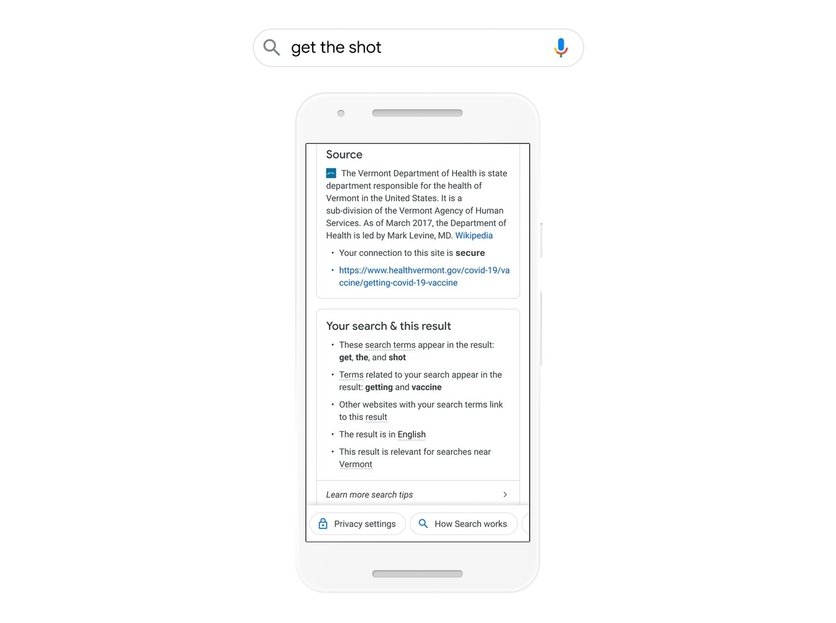Google's 'about this result' panel can now help you get more out of Search

The panel will now provide insight on Google's search algorithm and why you got those specific results.
What you need to know
- Google has updated its "about this result" feature to show more information about search results to users.
- The updated tool now offers more context about the results that appear when you search for something.
- It is now rolling out in English in the U.S.
Earlier this year, Google introduced a new Search feature called "about this result" to show information about a website in your search results from Wikipedia. Google has now updated the feature to allow users to show useful context about how Google returned the specific search results for their query.
Starting today, users in the U.S. will see detailed information about the most important factors used by Google Search to connect results to their queries in the "about this result" panel. You can access the panel by tapping on the three dots next to search results on the best Android phones. Google says this will help users evaluate whether a search result might be the one they're looking for. Some of the factors used by Search to provide relevant and useful results include matching keywords, related terms, local relevance, and links to a page that uses similar words as your query.
Additionally, the "about this result" panel will now highlight useful search tips that will help Google better understand exactly what you're looking for. For example, you can now adjust your search settings if you want to view results in a different language, or from a different country.
"About this result" will also show tips on how you can use Search to find exactly what you're looking for. For example, putting quotes around a word or phrase in your search query will ensure you get results that include those words exactly. You can even exclude certain words or phrases from search results by using a minus sign.
Google says the expansion of "about this result" is rolling out in English in the U.S. to start, but it will become available in more countries later this year.

No comments